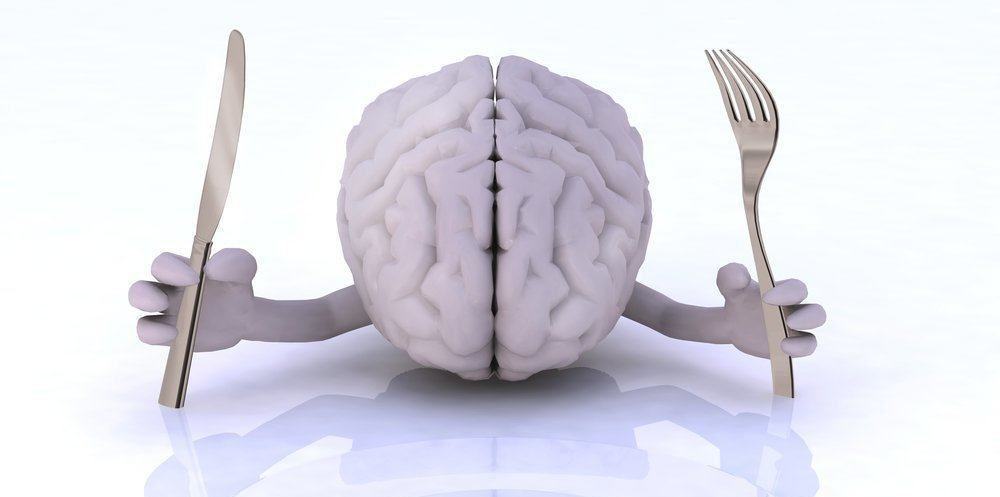Contents:
- Medical Video: Top 15 Super Brain Foods For Kids
- Foods that provide nutrition for the child's brain
- 1. Wheat
- 2. Sea fish
- 3. Grains
- 4. Eggs
- 5. Broccoli
Medical Video: Top 15 Super Brain Foods For Kids
In childhood, essential nutrients are needed to support rapid growth and development. In addition, nutrients are also needed to help intelligence the child's brain. Food is very influential on a child's brain development because food provides important nutrients needed by the brain, such as glucose, protein, essential fats, and vitamins and minerals.
Did you know that glucose is the main energy source for the brain? To do its work, the brain needs glucose as the main energy. Glucose is the smallest form of carbohydrates. You can get carbohydrates from rice, bread, potatoes, corn, flour, and others.
In addition to glucose from carbohydrates, amino acids and fatty acids in sufficient quantities is also needed by the brain to support its work, such as forming new tissue or forming a nerve sheath. You get amino acids from foods that contain protein and get fatty acids from fat.
We may always think negatively about fat. However, not all fats have a negative impact on the body. Good fat is actually needed by the body. Even about 60% of the brain is formed from fat. The amount is quite a lot, right?
These various nutrients are needed by the brain in sufficient quantities. Too little or too much amount of nutrients in the brain can affect the workings of the nervous system, making the nervous system work abnormally.
Well, what are the foods that can provide a source of nutrition for the brain?
Foods that provide nutrition for the child's brain
Just like other organs, the brain needs various types of nutrients to function. Especially in childhood where brain development is still ongoing, of course, adequate nutrition is needed and good for the child's brain. Here are some foods that contain nutrients for the child's brain.
1. Wheat
Wheat contains carbohydrates with a low glycemic index. Our brain needs energy obtained from glucose in carbohydrates to do its work. The brain's ability to concentrate and focus can be obtained from the amount of energy that is sufficient, the availability of energy in the brain. The low glycemic index in wheat helps the body to release glucose into the blood slowly so that it keeps blood glucose levels stable. This helps so that the body can always provide energy from glucose for the brain, so that you always focus throughout the day.
You can get wheat from whole grain cereals, whole wheat bread, brown rice, and pasta.
2. Sea fish
Fish contain essential fatty acids needed by the brain. These essential fatty acids are not produced in the body, so you need to get them from food consumption. The types of fatty acids that are needed by the brain are omega-3 and omega-6 fatty acids.
Ever heard the terms DHA and AA? DHA is docohexanoic acid formed from omega-3 fatty acids. While omega-6 fatty acids will be converted to AA or arachidonic acid. So, DHA and AA are nothing but forms of omega-3 and omega-6 fatty acids which are important nutrients to help develop children's brains. Omega-3 fatty acids can be obtained in fish, such as salmon, tuna, mackerel, hering, and sardines.
3. Grains
Certain grains also contain fatty acids. Unbalanced fatty acid intake can interfere with brain performance and cause disease. Fatty acids are one of the important nutrients that can determine a child's brain abilities. Omega-6 fatty acids affect brain function because it affects the release of neurotransmitters and also affects the ability of neurons to use glucose. Foods containing omega-6 fatty acids are walnut seeds, sunflower seeds, and sesame seeds.
4. Eggs
Eggs are a source of protein and are rich in vitamin B complex, such as vitamin B6, B12, and folic acid. In addition, eggs also contain omega-3 fatty acids. Proteins are known as building substances and also function in the formation of neurotransmitters. While vitamin B complex can help reduce homocysteine levels in the blood. High homocysteine levels in the blood are associated with an increased risk of stroke, cognitive impairment, and Alzheimer's disease.
5. Broccoli
Broccoli is a good source of vitamin K for the body. Vitamin K is known to function to support cognitive function and increase brain power. Research shows broccoli contains glucosinolate, which can slow the breakdown of neurotransmitters and acetylcholine. Neurotransmitters and acetylcholine are needed by the central nervous system to function properly and to keep the brain and memory sharp. Low levels of acetylcholine in the brain are associated with Alzheimer's disease.
In addition to the five foods above, other foods are also needed for children's brain development, such as foods containing iron minerals, such as meat, kidney beans, liver, corn, and rice; zinc minerals, as in eggs and shrimp; and magnesium minerals, as in corn and beans.
READ ALSO:
- 7 Habits That Can Help Brain Cognitive Functions
- Mother Care During Preschool Affects Child's Brain Development
- 10 Important Nutrition for Children












